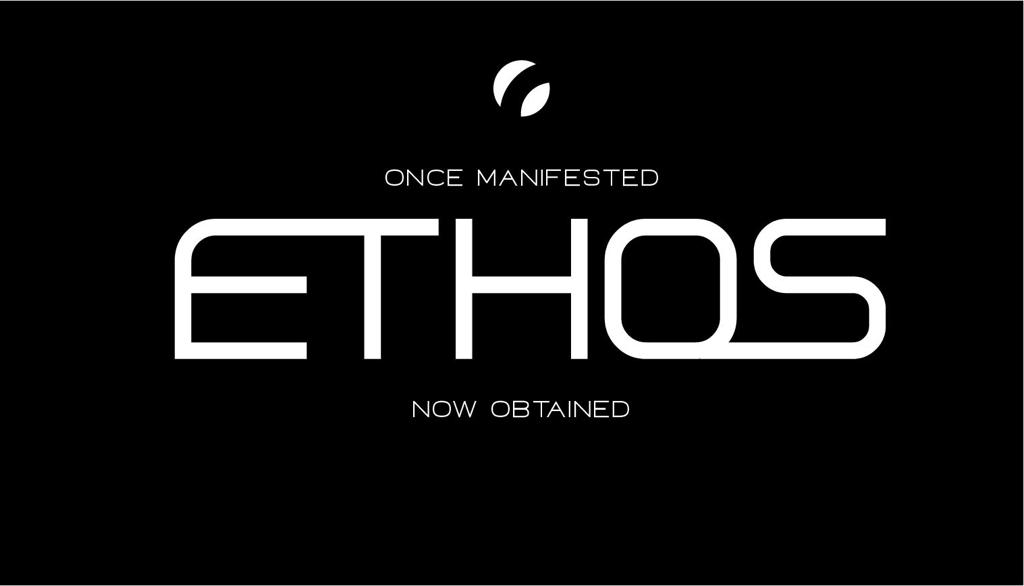If you’re a homeowner facing financial difficulties, pre-foreclosure can be a daunting prospect. It refers to the period of time between when your lender notifies you of delinquent payments and the actual foreclosure sale of your home. The good news is that with the right information and resources, you can avoid pre-foreclosure and protect your home and wealth. In this comprehensive guide, we’ll explore the steps you can take to avoid pre-foreclosure, understand your rights as a homeowner, and explore your options for preventing foreclosure.
Key Takeaways:
- Pre-foreclosure is the period of time between when your lender notifies you of delinquent payments and the foreclosure sale of your home.
- By taking proactive steps and seeking professional assistance, you can avoid pre-foreclosure and protect your home and wealth.
- Understanding your rights as a homeowner and exploring your options for preventing foreclosure can help you make informed decisions.
- Reputable companies specializing in pre-foreclosure prevention can offer valuable guidance and support.
- Taking preventive measures, such as managing your finances and establishing an emergency fund, can reduce the risk of falling into pre-foreclosure.
Understanding Pre-Foreclosure
When faced with the possibility of losing your home, it’s important to understand what pre-foreclosure means. It’s the initial stage of the foreclosure process, where your lender starts the legal process of taking ownership of your property due to unpaid mortgage payments.
The pre-foreclosure period is a critical time to take action and avoid foreclosure. During this period, you still have the opportunity to negotiate with your lender or explore other options to keep your home.
The Pre-Foreclosure Process
The pre-foreclosure process typically begins after a homeowner has missed three to six months of mortgage payments. At this point, the lender will send a notice of default, which informs the homeowner that they are in default on their mortgage and that foreclosure proceedings will begin if the outstanding balance isn’t paid within a specific time frame.
If the homeowner does not take any action, the lender will initiate the foreclosure process by filing a lawsuit against the homeowner. The homeowner will then receive a notice of the lawsuit, and the pre-foreclosure period officially begins.
During the pre-foreclosure period, the homeowner has the opportunity to take steps to prevent foreclosure. This can include negotiating a loan modification or repayment plan, selling the home, or pursuing other options.
What Happens During Pre-Foreclosure?
During the pre-foreclosure period, the homeowner has the opportunity to take several important steps:
- Review the loan documents and verify the amount owed to the lender.
- Contact the lender to negotiate a loan modification or repayment plan.
- Consider selling the home to avoid foreclosure.
- Explore options to refinance the mortgage or obtain additional funds.
- Consult with a qualified attorney or housing counselor for advice and support.
It’s important to take action during the pre-foreclosure period to protect your home and financial future. By understanding pre-foreclosure and the options available to you, you can take steps to avoid foreclosure and keep your home.
Knowing Your Rights as a Homeowner
As a homeowner facing pre-foreclosure, it’s important to understand your legal rights and protections. By exercising your rights, you can ensure fair and appropriate treatment throughout the pre-foreclosure process.
One key right that homeowners have is the right to be informed. Your lender is required by law to provide you with information about your loan, including your payment history, the amount you owe, and any fees or charges. In addition, they must provide you with a notice of default when you fall behind on payments.
Another crucial protection is the right to dispute any inaccurate information on your credit report. If you believe that your credit report contains errors related to pre-foreclosure, you can file a dispute with the credit reporting agencies.
You also have the right to seek assistance from a housing counselor or legal professional. These experts can provide guidance and support throughout the pre-foreclosure process, helping you to understand your options and exercise your rights.
Finally, it’s important to know that your lender must follow strict guidelines when initiating foreclosure proceedings. They must provide you with adequate notice and time to respond, and they cannot foreclose on your home while you are actively seeking a loan modification or other alternative to foreclosure.
Protecting Your Home
There are steps you can take to protect your home and exercise your rights as a homeowner facing pre-foreclosure. These include:
- Responding promptly to any notices or communications from your lender
- Keeping accurate records of all communication with your lender
- Seeking assistance from a housing counselor or legal professional
- Disputing any inaccuracies on your credit report
- Filing a complaint with the Consumer Financial Protection Bureau (CFPB) if you believe your lender has violated your rights
By staying informed and taking proactive steps to protect your home, you can avoid the negative consequences of pre-foreclosure and safeguard your financial wellbeing.

Exploring Your Options
When facing pre-foreclosure, it’s crucial to explore your options to avoid losing your home and protect your financial stability. Here are some alternatives to foreclosure that you can consider:
| Option | Description |
|---|---|
| Loan Modification | Adjust your loan terms and payments to make them more affordable, potentially extending the loan’s life and lowering the interest rate. |
| Refinancing | Replace your current mortgage with a new one, typically with a lower interest rate and monthly payments. |
| Short Sale | Sell your home for less than the amount owed on your mortgage, with your lender agreeing to forgive the remaining balance. |
| Deed in Lieu of Foreclosure | Voluntarily give your home’s ownership back to your lender, avoiding the foreclosure process entirely and reducing the potential damage to your credit. |
Each option has its pros and cons, so it’s essential to understand them before making a decision. Consider consulting with a pre-foreclosure specialist who can guide you through the process and help you assess which option is most suitable for you.
It’s also essential to take immediate action upon receiving pre-foreclosure notice. The longer you wait, the fewer options you have available, and the harder it becomes to avoid foreclosure. By exploring the alternatives to foreclosure early on, you can increase your chances of protecting your home and financial stability.
Seeking Assistance from Companies
When facing pre-foreclosure, seeking assistance from reputable companies can make a significant difference in protecting your home and wealth. These companies specialize in pre-foreclosure prevention and can offer valuable guidance and resources to help you navigate through the complexities of the process.
It is essential to do your research and choose a company that has a proven track record of success and positive customer feedback. Look for companies that are licensed and accredited, and have experience working with homeowners in situations similar to yours.
Top US companies specializing in pre-foreclosure prevention offer a range of services, including loan modification, refinancing, short sales, and deed in lieu. By working with these companies, you can explore your options and develop a customized plan to address your specific needs.
It is important to note that seeking assistance from companies can come with fees, so it is vital to understand the costs and fees upfront before committing to any services.
Researching Companies
When researching companies, consider the following:
- Years of experience
- Reputation in the industry
- Customer reviews and feedback
- Licensing and accreditation
- Services offered
- Costs and fees
Once you have narrowed down your list of potential companies, take the time to schedule a consultation with them. During this consultation, ask questions and clarify any concerns you may have. This will help you to make an informed decision and choose the best company to work with.

“By working with reputable companies specializing in pre-foreclosure prevention, you can explore your options and develop a customized plan to protect your home and wealth.”
Remember, pre-foreclosure is a serious matter and requires immediate attention. Seeking assistance from companies specializing in pre-foreclosure prevention can provide you with the knowledge and resources needed to take control of your situation and protect your home and wealth.
Taking Preventive Measures
Pre-foreclosure can be a stressful and overwhelming experience, but there are steps you can take to reduce the risk of falling behind on your mortgage payments. By taking preventative measures, you can protect your home and financial stability.
Create a Budget
One of the most important things you can do to prevent pre-foreclosure is to establish and maintain a realistic budget. This will help you keep track of your expenses and income, identify areas where you can cut costs, and ensure that you have enough money to cover your monthly mortgage payments. Consider using a budgeting app or spreadsheet to help you stay organized and on top of your finances.
Build an Emergency Fund
Another important step is to build an emergency fund that can cover unexpected expenses, such as medical bills or car repairs. This will help you avoid dipping into your mortgage payments and falling behind on your payments. Aim to save at least three to six months’ worth of living expenses in an emergency fund.
Communicate with Your Lender
If you are facing financial difficulties, do not ignore your lender. Communicate with them as soon as possible to discuss your situation and explore possible options. Your lender may be able to offer you a loan modification or other assistance to help you stay current on your payments.
Consider Downsizing or Renting
If you are struggling to cover your monthly mortgage payments, consider downsizing to a smaller, more affordable home or renting out a portion of your property to generate additional income. This can help you reduce your expenses and avoid falling behind on your mortgage payments.
By taking preventative measures, you can reduce the risk of falling into pre-foreclosure and protect your home and financial future. Remember that there are resources and support available to you if you need assistance. The next section will explore these resources in more detail.
Understanding the Impact of Credit Score
Pre-foreclosure can have a significant impact on your credit score, which can affect your financial well-being for years to come. Your credit score is a crucial factor in determining your ability to secure loans, credit cards, jobs, and even housing. It is essential to understand the impact that pre-foreclosure can have on your credit score and take steps to minimize these effects.
When you fall behind on your mortgage payments and enter pre-foreclosure, your credit score will likely take a hit. A foreclosure can remain on your credit report for up to seven years, making it difficult to obtain credit or loans in the future. Your credit score can drop by as much as 100 points or more, depending on your current score and the severity of the foreclosure.
| Days Late | Credit Score Impact |
|---|---|
| 30 days | 40-110 points |
| 90 days | 70-135 points |
| Foreclosure | 85-160 points |
As you can see, the longer you are delinquent on your payments, the more significant the impact on your credit score. In addition to the negative impact on your credit score, pre-foreclosure can also result in additional fees, legal expenses, and potential lawsuits.
However, there are steps you can take to minimize the impact of pre-foreclosure on your credit score. One option is to work with your lender to negotiate a loan modification or forbearance agreement. These agreements can provide temporary relief by reducing your monthly payments or allowing you to skip payments altogether.
Another option is to consider a short sale or deed in lieu of foreclosure. While these options may still negatively impact your credit score, they may be less severe than a foreclosure and can provide a faster resolution to your pre-foreclosure situation.
It is crucial to take action before pre-foreclosure turns into a foreclosure. By working with your lender, exploring your options, and taking preventive measures, you can minimize the impact of pre-foreclosure on your credit score and financial well-being.
Resources and Support
Facing pre-foreclosure can be a daunting experience, but it is essential to remember that help is available. Here are some resources and support options to assist you through this challenging time:
| Resource/Support | Description |
|---|---|
| HUD-approved Housing Counseling Agencies | These agencies offer free or low-cost counseling and can help you understand your options and develop a plan to avoid foreclosure. You can find a HUD-approved counseling agency in your area by visiting the HUD website. |
| State Foreclosure Prevention Programs | Many states offer foreclosure prevention programs, which may include loan modification or other assistance. Check with your state’s housing agency to see if you are eligible for any of these programs. |
| Mortgage Assistance Programs | There are various mortgage assistance programs available to help homeowners struggling with their mortgage payments. The Making Home Affordable program is a federal initiative that provides assistance to eligible homeowners. |
| Legal Assistance | If you are facing a foreclosure-related legal issue, you may be eligible for free legal assistance through Legal Services Corporation or other local legal aid organizations. |
| Financial Counseling | Financial counseling can help you develop a budget, manage debt, and improve your credit score. Many non-profit organizations offer these services for free or at a low cost. You can find a listing of non-profit credit counseling agencies by visiting the U.S. Department of Justice website. |
Remember, you are not alone in this process. Seeking assistance and support can make all the difference in avoiding pre-foreclosure and protecting your home.
Conclusion
Congratulations, you have reached the end of this comprehensive guide on avoiding pre-foreclosure. By now, you should have a better understanding of the concept of pre-foreclosure and the steps you can take to protect your home and wealth.
Key Takeaways
- Pre-foreclosure can have a significant impact on your financial well-being, so it is essential to take preventive measures.
- As a homeowner, you have legal rights that protect you from unfair treatment during pre-foreclosure proceedings.
- There are various options available to homeowners facing pre-foreclosure, including loan modifications, short sales, and deed in lieu of foreclosure.
- Seeking professional assistance from reputable companies can help you navigate the complexities of pre-foreclosure and choose the best solution for your situation.
- By taking proactive measures, such as managing your finances and maintaining open communication with your lender, you can reduce the risk of falling into pre-foreclosure.
- If pre-foreclosure does occur, it can have a negative impact on your credit score, but there are steps you can take to minimize the damage and rebuild your creditworthiness.
- There are various resources and support available to homeowners facing pre-foreclosure, including government programs and non-profit organizations.
Remember, the key to avoiding pre-foreclosure is to take action and make informed decisions. By following the tips and strategies outlined in this guide, you can safeguard your home and wealth and achieve financial stability.
Thank you for reading, and we wish you the best of luck in your pre-foreclosure prevention journey.
FAQ
What is pre-foreclosure?
Pre-foreclosure is the initial stage of the foreclosure process, where a homeowner is at risk of losing their property due to being behind on mortgage payments. It is the period between the missed payments and the actual foreclosure sale.
How long does pre-foreclosure last?
The duration of pre-foreclosure can vary depending on the state and the specific circumstances. It can typically last anywhere from a few months to a year or more.
What are my rights as a homeowner facing pre-foreclosure?
As a homeowner facing pre-foreclosure, you have certain rights. These may include the right to receive proper notice of the foreclosure proceedings, the right to negotiate with your lender, and the right to seek legal counsel if needed.
What are the alternatives to foreclosure?
There are several alternatives to foreclosure that you can explore. These include loan modifications, refinancing, short sales, and deed in lieu of foreclosure. Each option has its own advantages and considerations, so it’s important to understand them before making a decision.
How can professional companies assist me in pre-foreclosure?
Reputable companies specializing in pre-foreclosure prevention can provide guidance and support throughout the process. They can help you understand your options, negotiate with your lender, and develop a personalized plan to avoid foreclosure.
What preventive measures can I take to avoid pre-foreclosure?
To avoid pre-foreclosure, you can take proactive steps such as managing your finances responsibly, establishing an emergency fund, and maintaining open communication with your lender. These measures can help you stay on track with your mortgage payments and reduce the risk of falling into pre-foreclosure.
How does pre-foreclosure impact my credit score?
Pre-foreclosure can have a negative impact on your credit score. Missed mortgage payments and the foreclosure process can lower your credit score, making it more challenging to secure future loans or credit. However, with proper credit management and timely payments, you can rebuild your creditworthiness over time.
What resources and support are available for homeowners facing pre-foreclosure?
There are various resources and support services available for homeowners facing pre-foreclosure. These include government programs, non-profit organizations, and financial counseling services that can provide assistance, guidance, and potential solutions for your situation.
